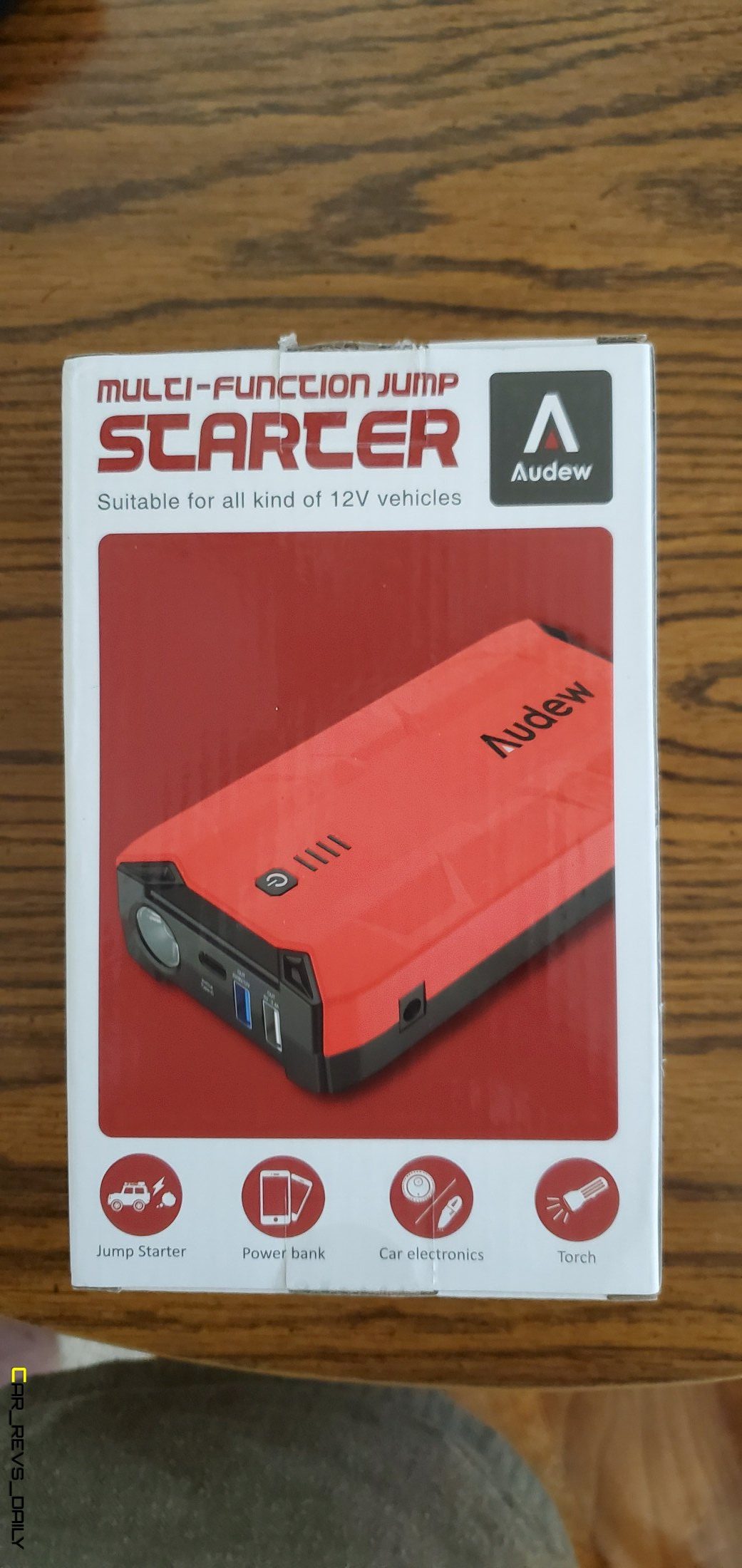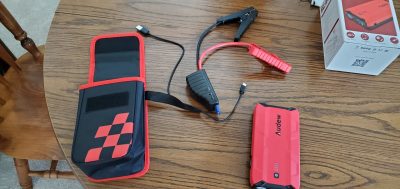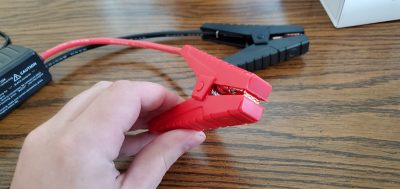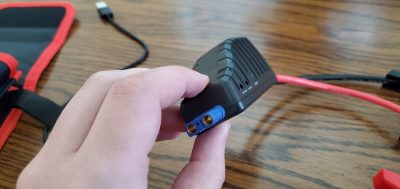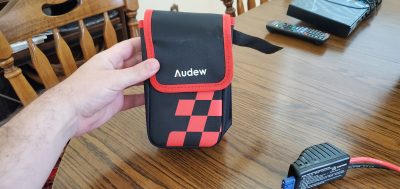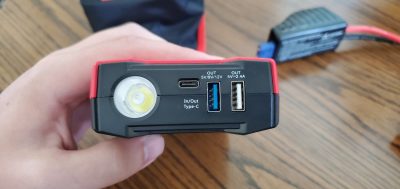When it comes to versatility, few can beat the sheer adaptability that comes from the legendary Swiss army knife. With a diverse range of tools and hidden uses at its disposal, this small tool has rapidly become a must have item for any citizen. The folks at Audew aim to do the same thing when it comes to automotive care products with their lineup of multi-function jump starters. But can this jack of all trades indeed excel with not only being a valuable automotive tool, but also be friendly with mobile devices? We were eager to find out.
Bulky Shape Hides Impressive Levels Of Usability:
When you first look at the jump starter as a whole, portability might not be the first thing that necessarily comes to mind. While the jump starter does come in a wide range of flavors, Audew chose to send us the 1000 amp version, which is supposed to be the volume focused seller in the family. The unit itself has a very functional shape, with the red and black two tone square shell being built for durability when used out in the field. This layout does keep it from fitting easily in your pocket, but Audew does supply a welcome carrying case which allows you to carry the jump starter to wherever it’s needed. The front of the unit was clearly built for versatility, and comes equipped with two output jacks, the first being a flexible one that can handle between 5 to 12 volts, while the second can handle 2.5 amps of current. A third output jack is designed for devices that use newer Type C charging cords, and its very good to see that this jump starter has that capability, considering that Type C is still a relatively new charging format. Move past the charging inputs, and you will also be greeted with a portable flashlight. The flashlight is extremely bright at night, and also comes with two blink modes to help it serve as an emergency light when you need rescue. A final input on the side of the shell is where you hook up the included jumper cables with the door hiding the port being prominently marked.
While we will touch on that particular aspect of things later, our tester immediately impressed us with the sheer amounts of flexibility that is baked into the design. In addition to charging phones, the jump starter can also be charged itself from either a wall outlet, a USB charging station at a local restaurant we ventured to after Michigan’s stay at home order was lifted, or even through the cigarette lighter outlet via our mobile car charger. Charging speed does vary depending on which method you use, with the wall being the fastest followed by our car charger and the fore-mentioned USB port. This impressive level of adaptability means it can literally be charged almost anywhere, and that should please buyers that might not have easy access to a wall mounted outlet.
Jump Starting Performance That Surprises:
But while the Audew’s abilities to power mobile devices is a very impressive feat, buyers ultimately purchase something like this to jump start their vehicles. While none of our fleet had any battery issues to test this particular function. We did the next best thing, and visited a local FCA dealership. With our eyes on the oldest vehicles in there inventory, we eventually had the opportunity to use the Audew on a dead Grand Caravan. As it turned out, the Caravan in question was actually supposed to be out on a test drive with a customer, so our impromptu visit proved to be a blessing for this particular dealership. The cables are a bit on the short side, so you will have to carefully position the Audew to endure that the cables can reach the positive and negative posts. On that note, the clamps are also small, so it does take a moment or two to align the jaws of the clamps to areas that can easily be gripped. Do it right, and the Audew will eagerly bring a vehicle back to life, with our test van cranking up on the first try. According to the company, the jump starter can be used on virtually all gasoline and diesel engines, but the system does not work on gas engines larger than 6.0 liters, and diesel engines larger than 4.5 liters. Despite those two minor limitations, the Audew multi-function jump starter is still a potent tool for a wide range of automobiles, and it certainly excelled at its main purpose in life.
Value Quotient:
Pricing for the Audew multi function jump starter is perhaps the biggest asset that it has. While availability on Amazon tends to fluctuate, buyers that choose to purchase one from Audew’s official website will be presented with a $58.99 admission fee. This goes up to just over $60 with sales tax, but it is still a pretty good bargain for an item that can do so much, and still be in a relatively compact package. This pricing also allows it to be less expensive than competitors like the $99.95 NOCO Boost Plus GB40, but it is pricier than the $49.99 DBPOWER 1000A and the $52.99 NEXPOW Car Battery starter.
This puts our tester roughly in the middle of the segment, but buyers looking for a cost effective addition to their automotive tool kits should highly consider adding this compact wiz kid to their arsenal. Both your car and your mobile devices will be happy, and you will also have more confidence in being able to tackle any emergency that might arise.
Buyers interested in purchasing this product can go to this link and use the code CRDAUDEW2 for 10 percent off their purchase.
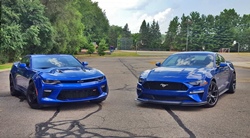
Carl Malek has been an automotive journalist for over 10 years. First starting out as a freelance photographer before making the transition to writing during college, his work has appeared on numerous automotive forums as well as websites such as Autoshopper.com.
Carl is also a big fan of British vehicles with the bulk of his devotion going to the Morgan Motor Company as well as offerings from Lotus, MG, and Caterham. When he is not writing about automobiles, Carl enjoys spending time with his family and friends in the Metro Detroit area, as well as spending time with his adorable pets.

